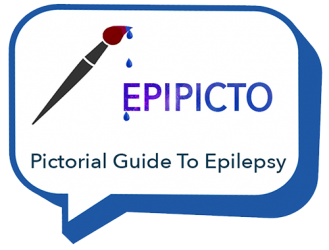There are adults with epilepsy who are at the risk of increased social exclusion.
- migrant persons,
- persons living in isolated areas in Europe
- persons with low literacy levels and low health literacy.
These persons are marginalised not only because of their health conditions, but also stigma and discrimination.
This guide will provide a useful tool of how we can facilitate self-management in epilepsy, both on a national as well as on an EU level. The aim of the guide is to share information about what epilepsy is, and what it is not. The guide will allow for easy knowledge transfer on facts about epilepsy. It is envisaged that this will also help adults with epilepsy to improve their health-seeking behaviour, contribute to an improved quality of life and in turn contribute towards a reduction of stigma based on misinformation and ignorance.
The contents will explain what epilepsy is and what it is not (dispelling myths), medication and treatment options, epilepsy first aid, how to reduce seizure frequency, and information for families.
The contents will explain
- what epilepsy is and what it is not (dispelling myths),
- Types of seizures
- Diagnosis
- medication and treatment options,
- epilepsy first aid,
- how to reduce seizure frequency,
- How to prevent and deal better with seizures
- information for families and friends.
Graphics are used extensively for the guide, to create appropriate images complementing the minimal text used.
The purpose of this guide is to initiate a discussion on how to find help on epilepsy. It is not intended to provide people with instructions on how to manage epilepsy on their own.
Moderation methods and workshops with persons with epilepsy and their relatives were used during multiplier events in Malta, Glasgow, Vienna and Koln to discuss
- What information should go into the guide
- How the information should be presented
- Provide ongoing feedback on drawings and text
The graphics used in the guide were developed and evaluated in subsequent multiplier events including Vienna when a proof of concept was rolled out. It is planned that the guide will be available online as an open resource so that the limited text can be easily translated into other languages. All information will be available from the start in the following languages:
- English
- German
- Dutch
- Maltese
These free guides can be downloaded following a simple registration form which can be found in the resources page.
A how to use guide to complement the use of the guide for tutors has also been developed according to ECTS standards. This can be found here together with a powerpoint presentation which can be used for teaching purposes which can be found in the resources page.
The information contained on this guide is for information purposes only, and you assume full responsibility and risk for the appropriate use of medical information contained herein. Do not make changes in your treatment, including medication or lifestyle, as a result of any information you read in this guide, and be sure to consult with your doctor before changing any medical treatment.
While EPIPICTO takes pride in providing accurate and up-to-date information about epilepsy and its consequences, there may be omissions or inaccuracies in such information and on this toolkit. EPIPICTO does not guarantee the accuracy or completeness of its information or services, and specifically disclaims any liability therefore. It is always important to consult a doctor

